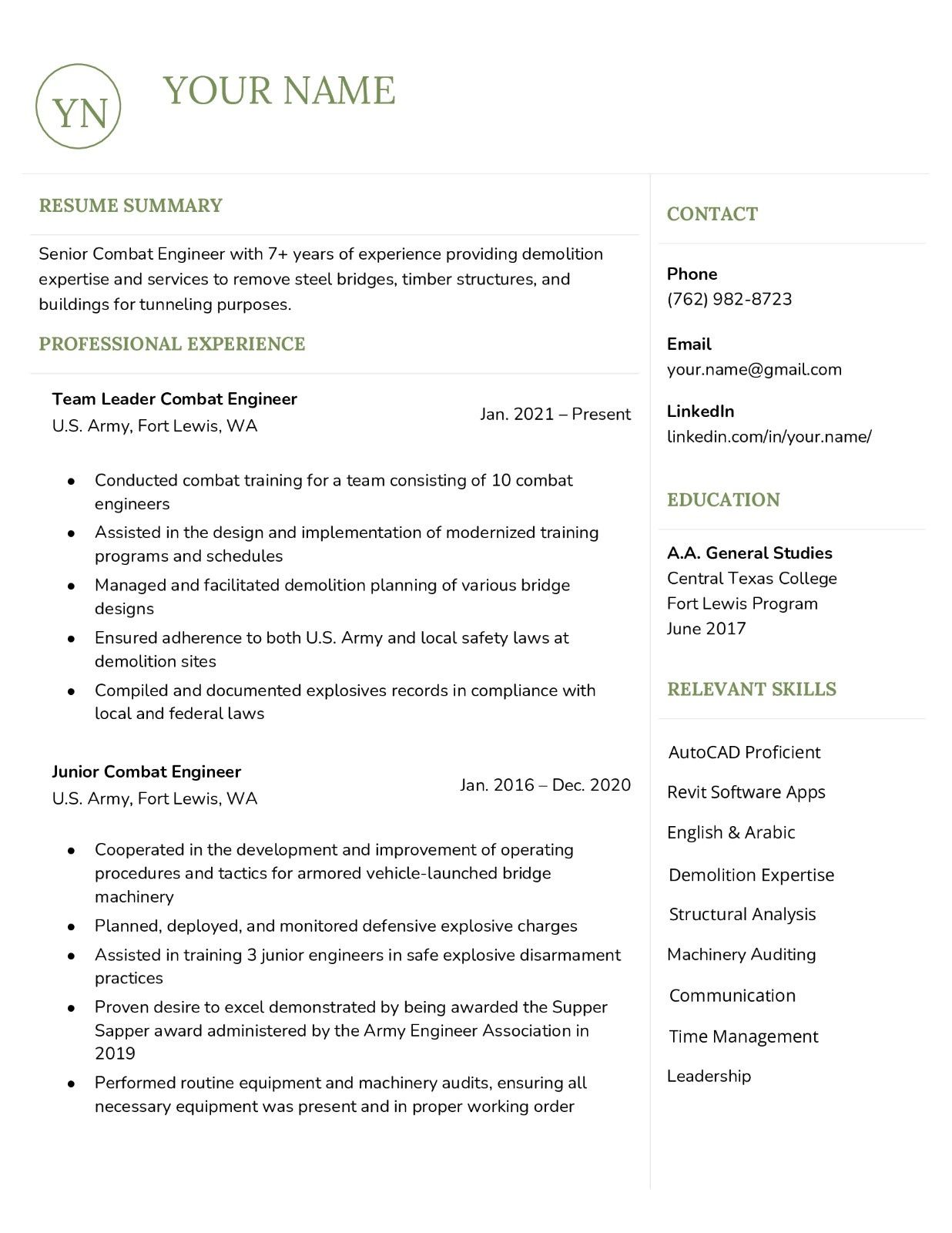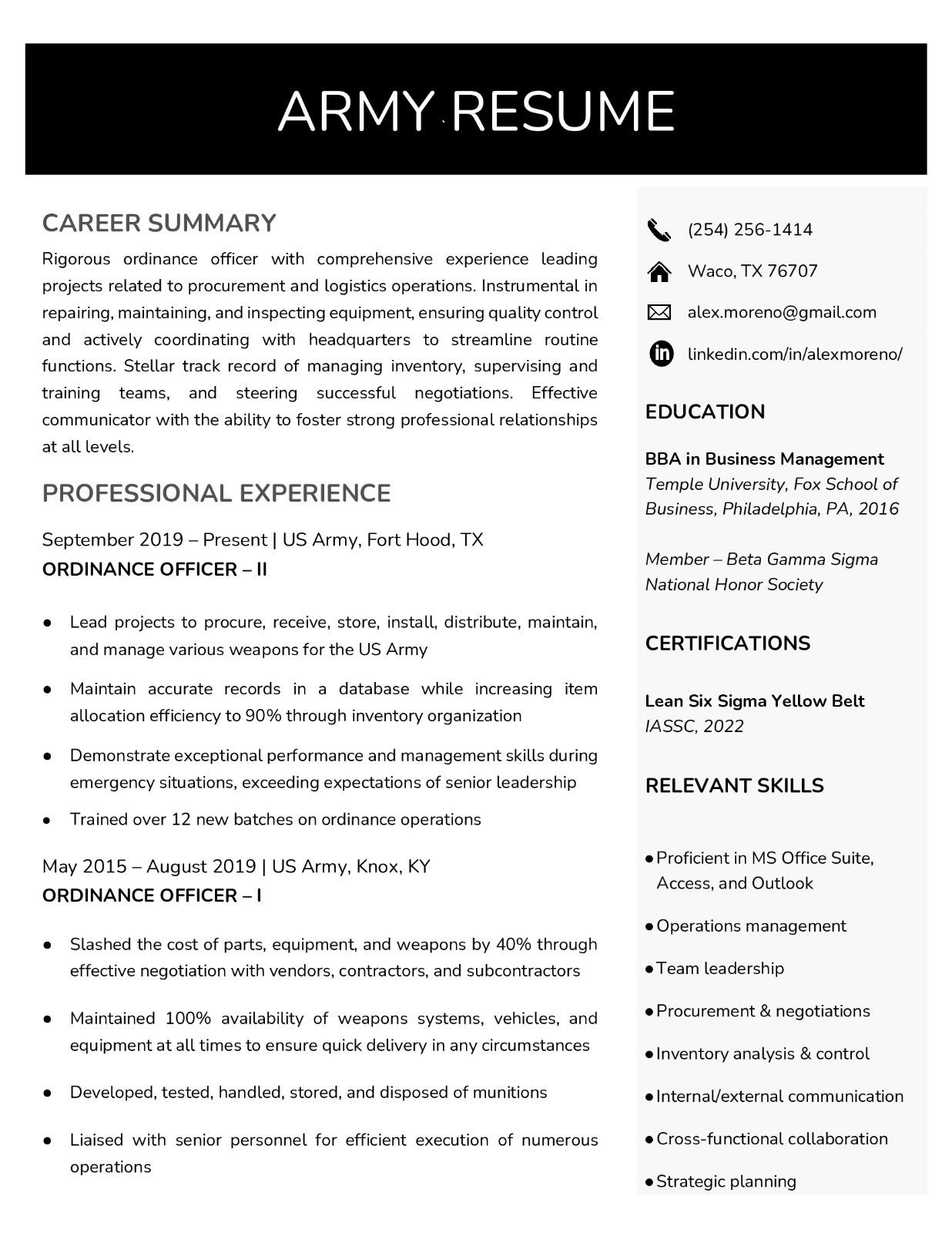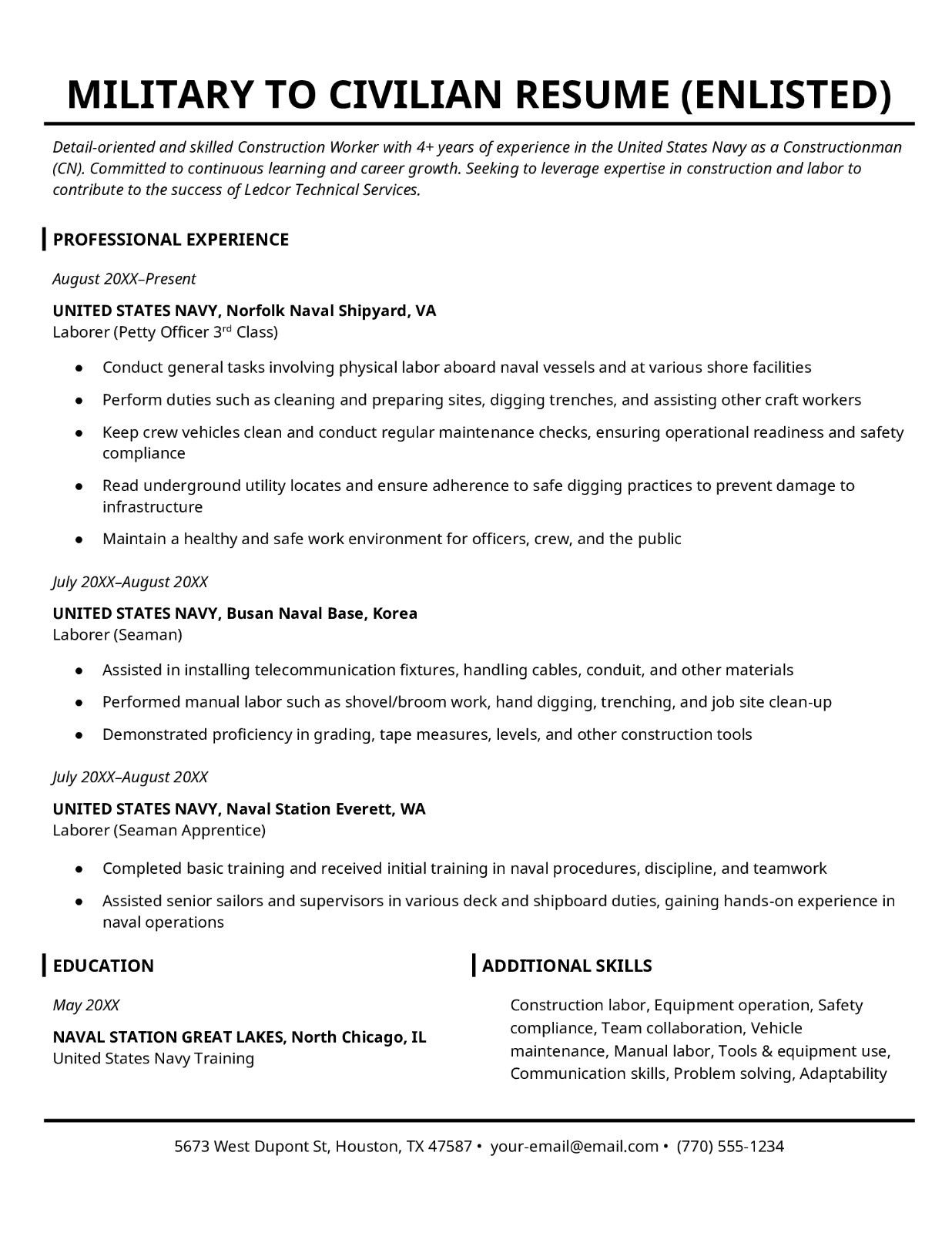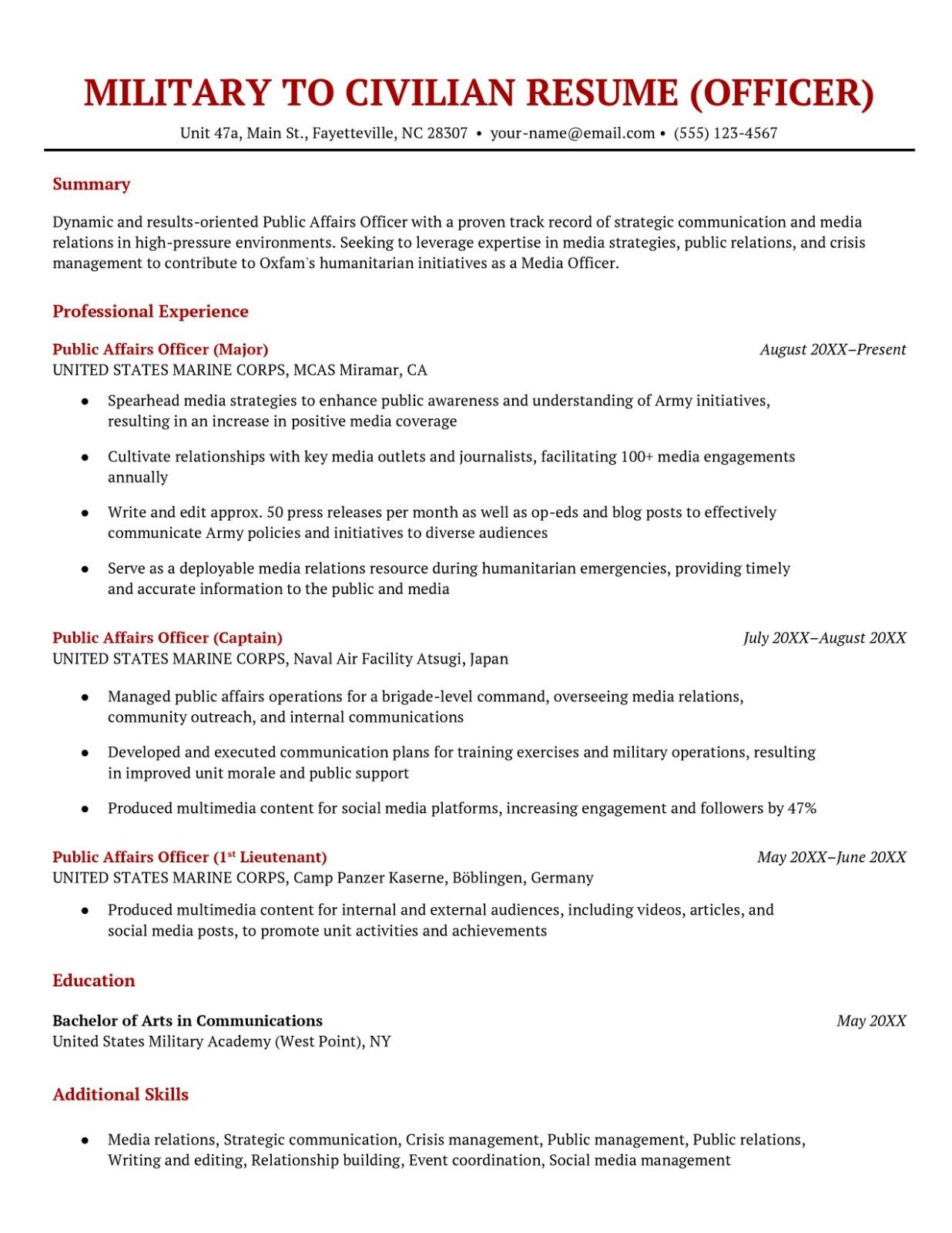How to Craft a Strong Military Resume: A Comprehensive Guide
Published on September 8th, 2024
Transitioning from military service to a civilian career can be challenging, especially when it comes to creating a compelling resume that reflects your unique experience. Military service members possess a wealth of skills, discipline, and expertise, but translating those into a resume that resonates with civilian employers requires thoughtful preparation.
In this guide, we'll explore how to craft a military resume that effectively showcases your experience, highlights your qualifications, and increases your chances of landing a job in the civilian workforce.
Military to Civilian Resume Examples
Here are a few tailored resume examples for different roles:
Template 1
Why a Military Resume is Unique?
A military resume differs from a traditional civilian resume because it must bridge the gap between military experience and the expectations of civilian employers. While service members bring valuable skills such as leadership, decision-making, and teamwork, it’s essential to translate military jargon into language that hiring managers outside the military can easily understand.
Your military resume should highlight:
- Transferable Skills: Focus on skills that apply to the civilian job market.
- Relevant Experience: Emphasize your leadership roles, responsibilities, and achievements.
- Clear, Civilian-Friendly Language: Avoid military-specific terms and acronyms.
Military Resume Format
There are three common resume formats: chronological, functional, and combination. When creating your military resume, a combination format often works best, as it allows you to showcase both your skills and your work experience.
- Chronological Format: This lists your work history in reverse chronological order. It’s ideal if you have a straightforward military career and want to emphasize your experience.
- Functional Format: This focuses on skills rather than specific job history. It’s a good option if you have gaps in your career or are transitioning to a new industry.
- Combination Format: A hybrid of chronological and functional formats, this approach allows you to highlight both your skills and job history. It’s well-suited for veterans transitioning into civilian roles.
Enhancing your military resume: Format and Layout Tips
- Contact Information
- Ensure this is easy to find at the top of your resume. Include your name, phone number, email, and LinkedIn profile (if applicable).
- Professional Summary
- This is a brief 2-3 sentence section that outlines your career highlights and what you bring to the table. Focus on the skills and experiences that make you an asset in the civilian job market. For example: “Highly disciplined and detail-oriented Army Officer with 10+ years of experience in leadership, operations management, and logistics. Proven track record of successfully managing teams in high-pressure environments and implementing strategic initiatives. Looking to transition into a project management role in the private sector.”
- Key Skills
- Create a bullet-pointed list of your most relevant skills. Focus on transferable skills that employers seek, such as leadership, project management, critical thinking, communication, and technical expertise.
- Military Experience
- For each position held during your service, include the following:
- Job Title: Translate military job titles into civilian-friendly language. For example, instead of “Platoon Leader,” use “Team Leader” or “Operations Manager.”
- Dates of Service: Include the years you served in each role.
- Accomplishments: Focus on what you achieved in each position, quantifying accomplishments where possible. For example: “Managed a $3M annual budget and oversaw logistical operations for 500+ personnel.”
- For each position held during your service, include the following:
- Education and Training
- List any formal education, military training, and certifications that are relevant to the civilian job you’re applying for. Highlight coursework or certifications that are directly transferable, such as project management, logistics, or technical skills.
- Certifications and Awards
- Include military honors and awards that showcase your dedication, leadership, and performance. For example, mention distinctions like the Bronze Star, Meritorious Service Medal, or Army Achievement Medal, but ensure they are presented in a way that civilian employers will appreciate.
Military Resume Writing Tips
- Tailor Your Resume to the Job
- Just like any other resume, it’s essential to customize your military resume for each job you apply for. Focus on the skills and experiences most relevant to the position and make sure to align your resume with the job description.
- Use Civilian Terminology
- Hiring managers might not be familiar with military terms, so break down your experience into language they can easily understand. For example, replace “mission planning” with “project planning” or “logistical support” with “supply chain management.”
- Highlight Leadership and Problem-Solving
- Veterans often have extensive experience leading teams, solving complex problems, and making decisions in high-pressure environments. Be sure to showcase these qualities, as they are highly sought after in many civilian roles.
- Focus on Your Achievements
- Rather than listing your responsibilities, emphasize what you accomplished during your service. Use metrics wherever possible to demonstrate the value you provided, such as managing budgets, overseeing personnel, or improving efficiency.
- Keep It Concise
- Keep your resume to 1-2 pages, focusing on the most relevant information for the job. Be succinct and avoid unnecessary details that might overwhelm the hiring manager.
- Proofread and Edit
- Attention to detail is critical when applying for civilian jobs, so make sure your resume is free from typos and errors. Proofread it multiple times and consider asking a friend or mentor to review it for clarity.
Conclusion
Transitioning from military service to a civilian career can be a smooth process when you have a well-crafted resume. By tailoring your resume to civilian job descriptions, using clear and relatable language, and highlighting your transferable skills and achievements, you can effectively market your military experience to potential employers. A strong military resume will open doors to new career opportunities and help you succeed in your post-service professional journey.
Hire the best without stress
Ask us how
Never Miss The Updates
We cover all recruitment, talent analytics, L&D, DEI, pre-employment, candidate screening, and hiring tools. Join our force & subscribe now!
Stay On Top Of Everything In HR




